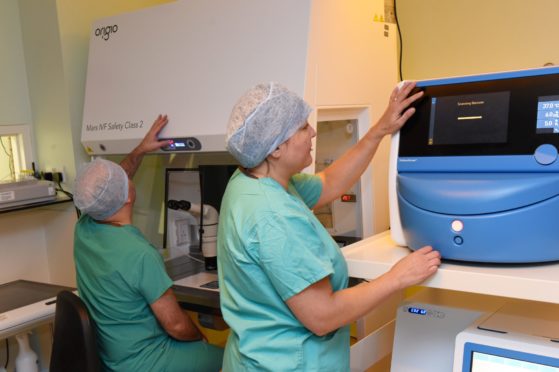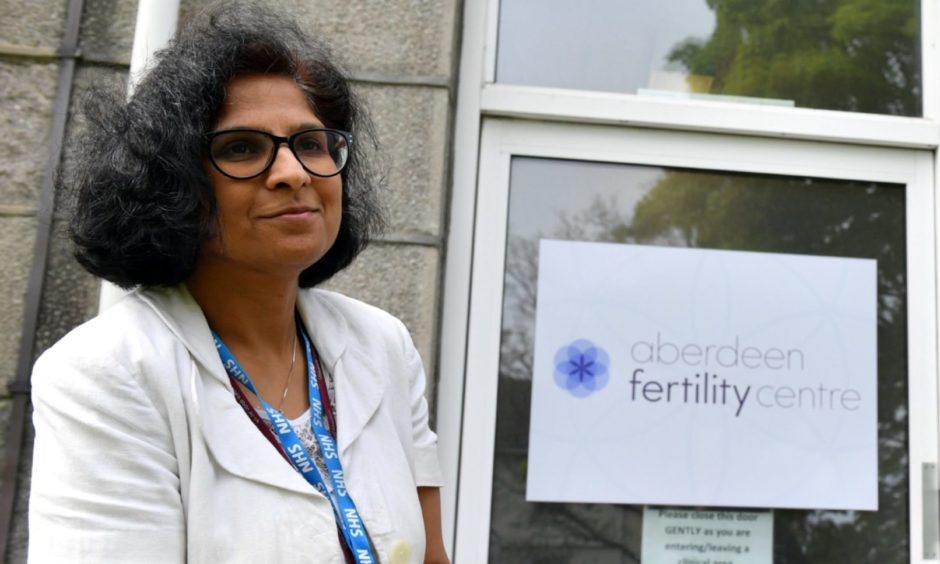Delays to fertility treatment brought about by the Covid-19 pandemic could reduce the number of live births in women older than 40 by almost a quarter, scientists fear.
The Covid crisis triggered a worldwide suspension of fertility treatments.
In the UK, it was stopped between March and May and a reduced process was in place from June onwards.
Now a study from Aberdeen University shows that delay is disproportionately affecting older women, leading to calls from researchers for women older than 40 to be prioritised when in vitro fertilisation (IVF) treatments resume fully.
In an attempt to find the best way of dealing with the backlog of untreated couples, researchers have used data from almost 10,000 women who have undergone IVF to better understand what the delays could mean.
Their findings, published in the Human Reproduction academic journal, show the potential impact of a delay in treatment of six months and 12 months on five age categories, from under 30 years olds, to 40-42 years-olds.
The delay affected every age group but, the older the age, the greater the impact on the number of estimated live births.
Professor Abha Maheshwari, clinical director of the Aberdeen Fertility Centre and one of the authors of the study, said: “A delay in starting IVF reduces success rates in all couples.
“For the first time, we have shown that while this results in fewer babies in older women and those with a known cause of infertility, it has a less detrimental effect on couples with unexplained infertility, some of whom conceive naturally whilst waiting for treatment.
“Post Covid-19, clinics planning a phased return to normal clinical services should prioritise older women and those with a known cause of infertility.”
The most pronounced impact was on the 40-42 years old group who were estimated to have an 11.8% reduction in live births if their treatment was delayed for six months and a 22.4% reduction if there was a year-long delay.
The figures also clearly show that the increased reduction in live births affects all age groups. For those ages 38-39 a six-month delay and 12 months delay reduced their chances of giving birth by 0.5% and 18.8% respectively.
At the other end of the scale, the under-30 age group of women were least affected by the delay, but still suffering reduced chances of 0.4% and 0.9% over the six and 12 months respectively.
The study also examined how a six or 12-month delay would impact women with known causes of infertility, tubal infertility and male factor infertility as well as women with unexplained fertility.
Professor Siladitya Bhattacharya, chairwoman in obstetrics and gynaecology at Aberdeen University, added: “It is critical that any plans to restart fertility treatment are based on a prioritisation system, which aims to identify women who should be treated early in a manner that does not disadvantage those who may need to wait longer.
“This is the first study to use national data to predict the consequences of delaying the start of IVF in different groups of women, whilst incorporating the chances of natural pregnancy in couples with different categories of infertility.
“We anticipate that our results will help to inform a process of phased access to IVF in post-Covid recovery and hope it will help patients understand the rationale for decisions made by clinics, funders and policy makers in formulating a strategy for re-starting IVF treatment.”
In Scotland, women under 40 can have three funded rounds of IVF treatment and one between the ages of 40 and 42, if all the relevant criteria is fulfilled.

